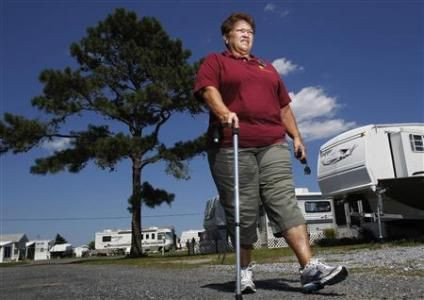Hip Replacement Deaths See 'Dramatic' Decline Over The Last 10 Years

Since 2003, the number of deaths related to hip replacement surgery has been cut in half due to treatments that stop blood clots, the use of spinal anesthetic, and patients who were active. A study conducted on individuals from England and Wales tracked the amount of deaths within 90 says of hip surgery using the National Joint Registry.
“It is extremely good news that the risk of death after hip replacements has reduced so dramatically in England and Wales,” said orthopedic surgeon Dr. Ashley Blom. “It is also very exciting that we can further reduce the risk of postoperative death by adopting four relatively simple measures.”
Dr. Blom and her colleagues used the National Joint Registry to identify 409,096 patients who underwent a hip replacement surgery to treat osteoarthritis between 2003 and 2011. During this eight-year period, 1,743 patients died within 90 days of undergoing the operation, BBC reported.
Of the 24,723 hip replacement operations performed in 2004, 139 patients died as a result. In 2011, 60,727 hip replacement surgeries were performed, resulting in 164 deaths. Researchers identified a decline in mortality rate from 0.56 percent to 0.29 percent.
"Although not everyone who has arthritis will need hip replacement surgery, for many people, it's their only hope to reduce the pain, disability and stiffness associated with the disease,” read a statement from Arthritis Research UK. "There are however always risks associated in having major surgery such as hip replacement surgery, so we advise people to discuss these risks with their surgeon before they decide to have a hip replacement."
The research team gave a number of reasons that explain how such a sharp decrease in patient deaths occurred within an eight-year period. Spinal anesthetic and treatments to stop blood clots were connected to a lower risk of death. Patients who participated in physical activity following their procedure also stood a smaller chance of facing complications.
Researchers also noted that patients with medical conditions such as liver disease, heart disease, diabetes, and renal disease were at a higher death risk compared to those who were relatively healthy. Surprisingly, patients who were considered overweight were less likely to die than patients with a normal body mass index (BMI) of 20-25 who had undergone a hip procedure.
“The finding that overweight people have a lower risk of death is surprising, but has been confirmed by other recent studies, and challenges some of our preconceptions,” Blom added. "We need to concentrate efforts on reducing the risk of death in high risk groups such as those with severe liver disease."
Source: Hunt L, Clark E, Judge A, et al. 90-day mortality after 409 096 total hip replacements for osteoarthritis, from the National Joint Registry for England and Wales: a retrospective analysis. The Lancet. 2013.



























